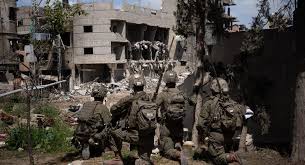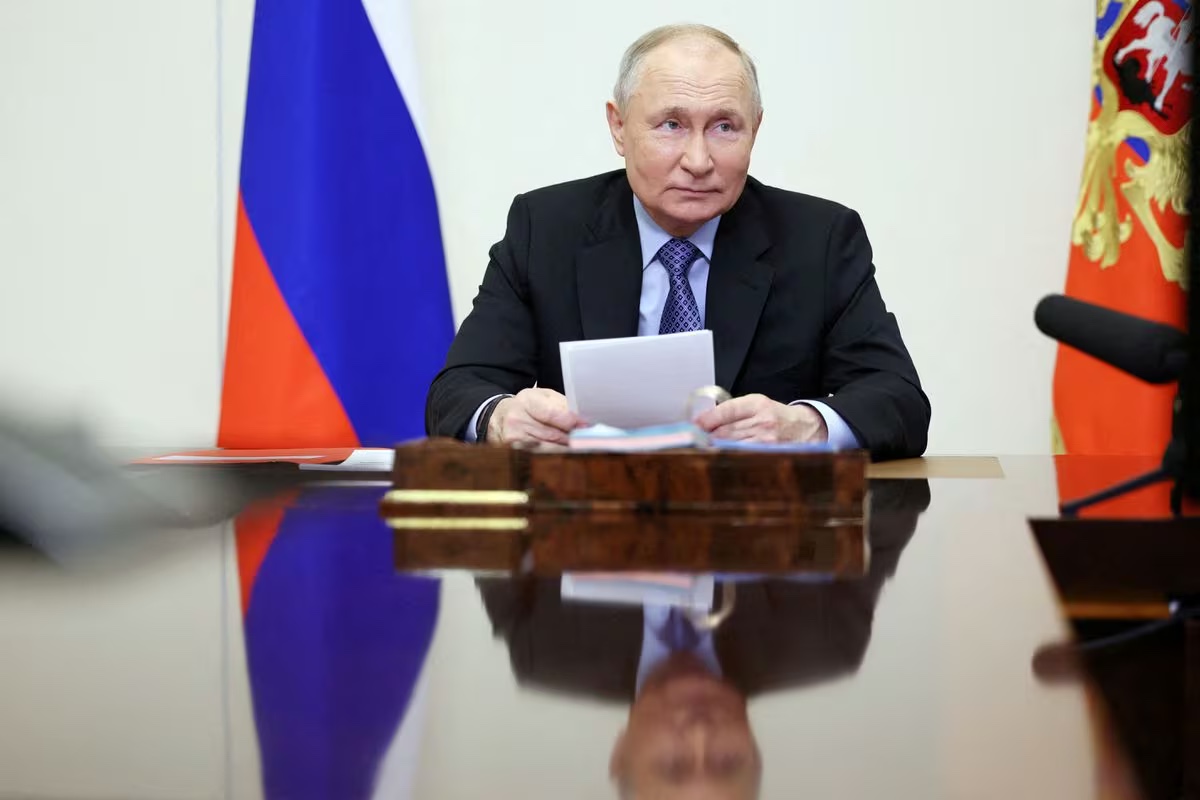Israel-Hamas war: Did Oct. 7 change Israeli left-wing views on peace?

By ARIELLA MARSDEN
36% of Israelis have gone farther Right, as opposed to only 6% who reported going farther Left, following Hamas’s October 7 massacre.
Israel’s political spectrum is unique among other democratic and Western countries. While the differences in opinion between the Left and the Right focus on social and economic policies, as they do around the world, in Israel they also focus heavily on the Israeli-Palestinian conflict.
Israel’s Right generally believes in Israeli control of the West Bank and Gaza, with many right-wing Israelis being opposed to a Palestinian state alongside Israel. This can be seen in many of the current government’s policies, which have worked toward expanding Israeli settlement of the West Bank.
As such, Israel’s far-right parties believe that when the war ends, Israelis should once again settle in the Gaza Strip as they did before the disengagement in 2005.
A significant percentage of these parties’ constituents are settlers who see it as their right and duty to settle in various areas of the West Bank, and they are usually the ones involved in violent confrontations with Palestinians in the West Bank.
On the opposite side of the spectrum sits Israel’s Left, which largely believes that Israel is “occupying” the West Bank and that an end to the conflict can only be achieved by ending that status and enabling a two-state solution.
Aside from the Arab parties, this viewpoint is mainly expressed through the ideologies of Israel’s left-wing Meretz and Labor parties, both of which tout the two-state solution among their aims. The far-left can often be found protesting against and getting into physical fights with the IDF in the West Bank.
Hamas’s massive surprise attack on Israel in October was unprecedented and the deadliest day for Jews since the Holocaust. Some 1,200 people were massacred, with thousands more wounded. Some 240 men, women, and children were taken hostage.
The attack was a significant event that changed the course of politics in Israel. In the last year, Israel found itself leaning Right, with what many have called “the most right-wing government in Israeli history” getting elected at the end of last year. In the last election, the Left got so few votes in comparison, that Meretz didn’t pass the electoral threshold to make it into the Knesset.
Recent polls published in the last seven weeks, however, show that if elections were held now, the new government would likely be largely centrist, while the far ends of the political spectrum would remain mostly stable. Despite this, an N12 poll last week found that 36% of Israelis have gone farther Right, as opposed to only 6% who reported going farther Left. Among the people who reported becoming more right-wing were 10% of Center and Left voters.
Shifts among the Left
Many right-wing people, and a minority of left-wingers, saw October 7 as proof that peace with the Palestinians is impossible.
Some of them, like Avida Behar, came from the towns and kibbutzim near the border with Gaza. Behar’s family lives in Kibbutz Be’eri, and his wife and son were murdered in the October 7 attack. The people of the kibbutz are mostly secular and left-wing, and saw Gazans as their neighbors. But not all of them still hold that view.
Lying in the hospital, recovering from his wounds that forced doctors to amputate his leg, Behar said that the whole of Gaza had to be obliterated. He told Channel 13 that Gazans of all ages had taken part in the attack, and that the only way residents of Gaza border communities could go back home was if none of them were left.
Ever since he was a kid, Sam Altman—the CEO of OpenAI —has been an avid reader. He shares the nine books that he thinks will change your life.
Sponsored by Blinkist: Sam Altman’s Reading List
What is Outbrain
Political changes of heart have also been expressed by Israelis who had not been harmed in the attack, among them renowned chef Meir Adoni.
“I confess that I was one of those losers who supported and preached peace,” he wrote in an Instagram post last week. “For 30 years, I traveled the world to peace camps in Norway, Jordan, Israel, and the rest of the world. I had delusional dreams of a beautiful and peaceful world that is full of good and love.”
He went on to say that he held on to his views despite the great personal cost of losing clients and campaigns because of them.
“On October 7 at 6:30 a.m., Meir Adoni died,” he continued. “A minute later, a new Meir was born. A Meir that repents his sin. A Meir who is ashamed that he was part of the delusion of the delusional Left who don’t understand that we are surrounded by extreme Islam monsters who have no interest in peace and normalcy, and only want to burn us alive.”
He ended by asking forgiveness from Israel and God for having identified as left-wing.
Still, the majority of Israel’s Left remains unwavering in their belief that peace with the Palestinians is possible and sees October 7 as proof that it is more necessary than ever.
Meretz management chairman Uri Zaki has spent his career helping advance the peace process. He was involved in negotiations of the Geneva Accord, which was published in 2003 and sought to end the Israeli-Palestinian conflict, and the Oslo peace process, which began in 1993.
While Zaki knew people who were murdered on October 7 or died in the subsequent war, it has not changed his views but only confirmed them.
“My outlook on the conflict hasn’t dramatically changed,” he told the Magazine. “Of course, it was an awful attack. I always saw Hamas as a force whose raison d’etre was to oppose a diplomatic solution to the Israeli-Palestinian conflict. I believed we should fight it like a terrorist organization.”
He added that he had been against the Gilad Schalit deal, maintaining that the release of 1,027 terrorists from Israeli prison would pose a danger in the future. Hamas leader Yahya Sinwar was released in that deal, and Zaki said he should have been a target for Israel.
He also said that while Meretz supported the Israeli disengagement from Gaza in 2005, they had seen issues with it at the time because it was too one-sided. He now believes it had been a mistake.
Despite all this, the attack was surprising to Zaki.
“We were all surprised by the cruelty and barbarity,” he said. “We were also surprised by the failure of the security forces to prevent it. But the fact that Hamas is murderous and extreme and doesn’t want to live alongside us isn’t surprising.”
The surprising cruelty and barbarity of the attack has not swayed Zaki from his faith in peace, however, alongside his belief that Israel needs to act strongly against Hamas.
“At the same time, we cannot neglect the Israeli-Palestinian issue,” he said. “Until we solve it, we cannot live here in peace. The solution will have to be diplomatic, even if it includes IDF presence in the event that a Palestinian state is established.”
Zaki explained the importance of peace with Israel’s neighbors by pointing out that Israel is not canceling peace agreements with Egypt, where there are massive protests against Israel; or with Jordan, where Queen Rania is denying the events of October 7.
“We won’t cancel peace agreements with them because peace is the strongest solution,” he said.
Committed to coexistence
The same faith in peace was also expressed by Women Wage Peace (WWP) member Naama Barak-Wolfman, who joined the organization six years ago.
“I joined WWP when my first kid joined the army,” she told the Magazine. “I had two more who were going to follow, and I realized I had to do something about the political situation.”
The organization, founded after Protective Edge in 2014, works toward negotiations to bring about a “just and reliable peace agreement” between Israel and the Palestinians in order to bring about a resolution to the conflict and “a better future for the youth.”
WWP focuses on the role of women in achieving peace, in accordance with UN Resolution 1325, which says that women must play an active role in conflict resolution and peace negotiations.
“We recognize that there are many potential solutions that have been offered, and we don’t endorse any specific one of them,” said Barak-Wolfman. “We have to sit and talk about it and negotiate.”
While Barak-Wolfman didn’t lose any direct family members on October 7, the organization lost one of its founders, Vivian Silver, and another member, Orit Swirsky. Silver was initially believed to have been taken hostage in Gaza, but a few weeks into the war her body was identified.
The attack has affected Barak-Wolfman’s political views, she said, but she still believes in the bottom line that the resolution to the Israeli-Palestinian conflict has to be achieved through negotiations and a political agreement, and that Hamas can no longer be in power.
“It would be in the best interests of the Gazans if Hamas were removed from Gaza,” she said. “After that is achieved, I know we will still have to solve the conflict permanently. It’s still possible, but it’s going to be harder. We’ve been taken two steps back because of fear and mistrust, and it’s trust that we’re trying to build.”
Barak-Wolfman said that WWP was being supported in its efforts by its sister organization, Women of the Sun, made up of women from Gaza.
“We still have our partnership with them,” she said. “We talk to them daily. They immediately called [on October 7] to express horror and concern, and reminded us that we have to stick together and be there for each other.
“This isn’t something they can do easily because they are in danger when they speak out this way. They cannot be too vocal, but they send us messages all the time.”
But not all foreign organizations have been as supportive as Women of the Sun. Meretz’s Zaki said he was most surprised by the “strength of the hypocrisy and antisemitism from foreign organizations,” including some Jewish ones.
“We’ve never had contact with the Jewish Voice for Peace or organizations like them,” he said. “But I knew one of the founders of IfNotNow, and I was very surprised by Jewish organizations. They didn’t stop for enough time to understand. They just see Israel as the devil, and that’s support for terrorism, and they are turning their backs on Jews.”
Zaki explained that he saw these organizations as hypocritical because there are laws against attacking civilians that Israel heeds, but on October 7 civilians were targeted by Hamas.
“These organizations didn’t consider that, and immediately attacked [criticized] Israel,” he said. “They didn’t try to hide their hypocrisy, which I can only take as antisemitism.”
Barak-Wolfman added that WWP has been strongly disappointed with UN Women and the Red Cross.
“WWP is an adviser to UN Women,” she explained. “Their statement made no mention of the atrocities, so that was a great disappointment; and the Red Cross hasn’t been doing their job with the hostages. They should be working on a way to see them, and they haven’t.”
The Red Cross’s president Mirjana Spoljaric visited Hamas’s Sinwar in Qatar earlier this week, more than six weeks after the war began. A Red Cross team still has not visited the hostages in Gaza.
But with or without the help of international organizations, Zaki and Barak-Wolfman are optimistic that peace is still possible between Israel and the Palestinians.
“I never stopped advancing this, even in the last few years when it was unpopular,” Zaki said. “We all feel strongly about Palestinians right now, but we need to be rational and think about what is good for Israel, and what is good for us is not to mix.
“Palestinians need self-determination in the West Bank. This is a Zionist interest because Israel cannot survive for much longer as a Jewish state when there is a majority of Palestinians. It would be very dangerous.”
Meanwhile, WWP is already getting back in action.
“We’re working on a new plan,” said Barak-Wolfman. “It’s only been six weeks. At first, we were stunned and could only be there for one another. But now we’re trying to recover and revise all our projects.
“On October 4, WWP and Women of the Sun had a huge day-long get-together of women from both sides of the border. We called for peace, and we felt so hopeful. Then October 7 happened.”
She added that WWP is aware of the great suffering on both sides as a result of Hamas’s attack and the war.
“Eventually, it will get better,” she promised. “It has to. Even with the setbacks, this will help people see that the only solution is a political, negotiated one. I’m optimistic because we all just want to live in peace.”
Source: The Jerusalem Post




